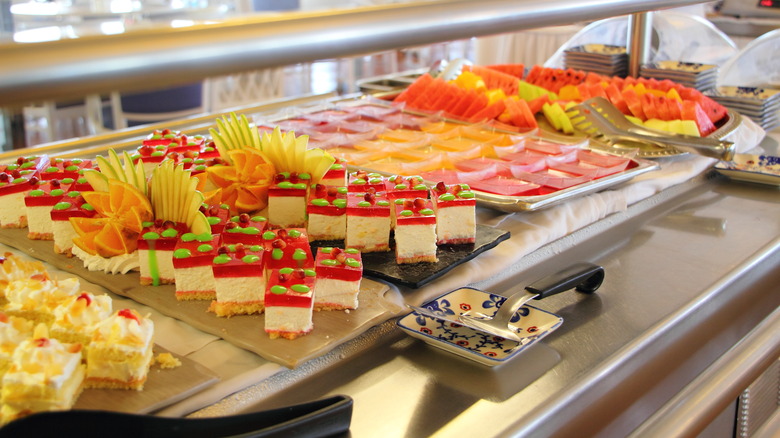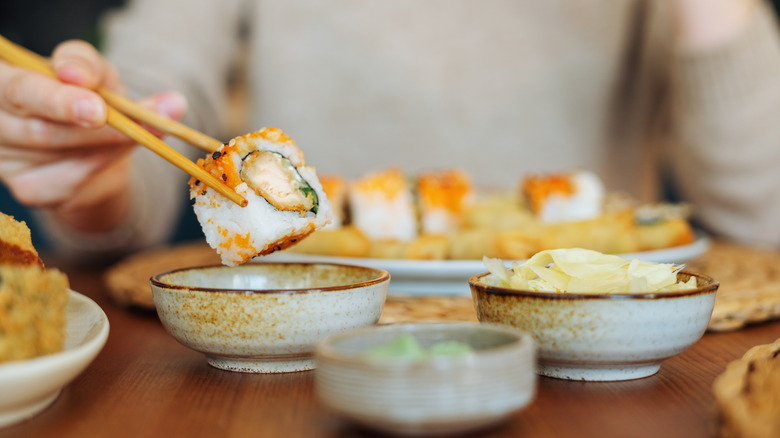Cruises have a reputation for causing tummy troubles, and unfortunately, it’s not just an unflattering stereotype. In 2023, the Centers for Disease Control and Prevention (CDC) logged 14 cruise ship infection outbreaks, all of which involved symptoms of vomiting and diarrhea. The culprit in most outbreaks was norovirus, though food poisoning and regular ol’ seasickness can also trigger bouts of stomach issues for many passengers.
If you’re an avid sailer, you might view stomach bugs as just a part of the experience but know that they don’t have to be. A few dietary adjustments could lower your chances of getting sick on a cruise and spending days hugging your stomach in bed or locked in the restroom.
The first tip — and yes, it can be easier said than done — is to avoid foods that aren’t usually in your diet. It can be thrilling to sample every dessert offered at the buffet or try an exotic dish for the first time, but consuming too many new and unusual foods can be overwhelming for your digestive system. “Maybe we’re eating fewer vegetables and therefore getting less fiber, which can lead to constipation,” Dr. Eamonn Quigley, a gastroenterologist, told Houston Methodist. “Or sometimes we’re trying entirely new cuisines and we inadvertently eat something we’re intolerant of and diarrhea or indigestion result.” Limit indulgences to just one or two servings per day to ward off an upset stomach.
Be cautious when eating at the buffet

Filling up your plate (or four) at the all-you-can-eat buffet is one of the best ways to get your money’s worth on a cruise, but it’s also one of the easiest ways to catch a stomach bug. As Yasmin Pekel, CEO of Blue Cruise, shared with Express, passengers don’t always follow buffet etiquette, which could result in contamination. “While the rules say not to pick up food with bare hands, and buffets provide many tools, there is no guarantee that people will follow them,” Pekel explained, adding that the specialty restaurants are a safer choice.
CDC Travel Health Expert Dr. Phyllis Kozarsky agrees, telling WebMD, “We recommend that foods be freshly cooked and be piping hot; such foods are safer than those on a buffet that have been sitting out for hours.”
If you still can’t resist the buffet, be sure to avoid food items that are more likely to make you sick. Don’t consume any hot foods that are kept at a temperature below 140 degrees Fahrenheit (and if there’s no thermometer in sight, steer clear). For cold foods, ensure they’re kept on ice that’s still frozen. If you witness another sailer mishandling the food, notify the buffet staff, and don’t hesitate to ask for a fresh serving delivered straight from the kitchen.
Watch out for raw foods

A freshly chopped salad or serving of cubed watermelon might seem like a healthy choice when dining on board, but if they’ve been contaminated, they could create a host of health issues. Fresh salads and cut produce may come in contact with dangerous microbes from the preparer’s hands or other foods, and because they’re left uncooked, there’s no way to eliminate the germs. Similarly, fresh condiments can become a breeding ground for bacteria, particularly if multiple people are handling them. When possible, choose raw foods that are still in their original packaging or that you cut and peel yourself, such as apples and bananas.
Raw seafood, including sushi, is another food to watch out for on your next cruise. Uncooked fish can carry parasites and spread bacterial infections such as Vibrio, Bacillus cereus, and salmonella, as per Verywell Health. Norovirus can also be passed from person to person through raw fish, especially if the person preparing it has been infected. These risks exist no matter where you eat your salmon rolls, but your chances of coming down with an illness can be especially high on a cruise, where space is tight and illnesses can spread quickly. Plus, unless you order your meal at a cruise restaurant that specializes in sushi, the kitchen staff might not know how to properly store and prepare the fish.
Even if the sashimi or fruit salad looks tempting, play it safe and go with cooked foods when possible. Your stomach will thank you.

